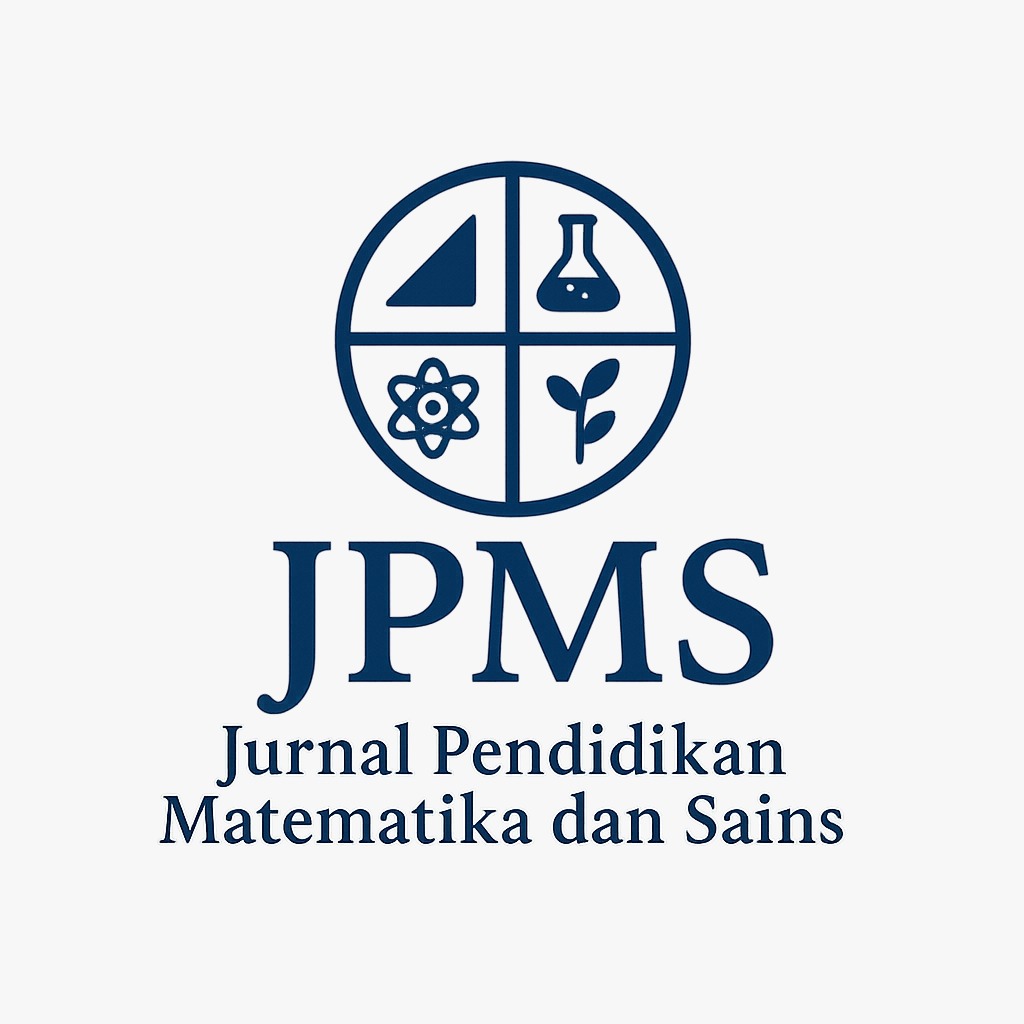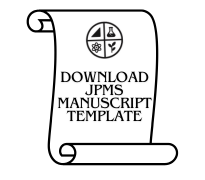Pengembangan subject specific pedagogy berbasis inkuiri untuk meningkatkan keterampilan proses dan motivasi belajar IPA
DOI:
https://doi.org/10.21831/jpms.v5i1.13537Keywords:
pengembangan, SSP, inkuiri, keterampilan proses, motivasi belajar IPAAbstract
Penelitian ini bertujuan untuk: (1) mengembangkan subject specific pedagogy (SSP) berbasis inkuiri sehingga layak digunakan dalam pembelajaran IPA kelas VII, (2) mengetahui peningkatan keterampilan proses siswa, dan (3) mengetahui peningkatan motivasi belajar IPA siswa SMP setelah menggunakan SSP berbasis inkuiri. Metode yang digunakan dalam penelitian ini adalah Research and Development (R & D) yang dikembangkan Borg & Gall. Langkah pengembangan meliputi studi pendahuluan, perencanaan, penyusunan draf SSP dan validasi, uji coba terbatas, evaluasi dan revisi, uji coba lapangan menggunakan one-shot case study, revisi produk berdasarkan uji coba lapangan, dan produk akhir. Subjek coba pada penelitian ini adalah siswa SMPN 2 Kembang Jepara. Pengumpulan data dilakukan melalui angket, observasi, dan tes. Hasil penelitian menunjukkan bahwa: (1) SSP berbasis inkuiri yang dikembangkan (silabus, RPP, LKS, dan lembar penilaian) telah melalui tahapan validasi, uji coba terbatas, dan uji coba lapangan sehingga layak digunakan dalam pembelajaran IPA, (2) SSP dapat meningkatkan keterampilan proses, meliputi keterampilan mengamati, menyusun hipotesis, menganalisis data, mengkomunikasikan, dan mengambil kesimpulan, (3) SSP dapat meningkatkan motivasi belajar IPA siswa, meliputi tingkat keyakinan diri, strategi pembelajaran aktif, nilai belajar IPA, tujuan belajar IPA tujuan prestasi, dan dukungan lingkungan pembelajaran.
Kata Kunci: pengembangan, SSP, inkuiri, keterampilan proses, motivasi belajar IPA
THE DEVELOPMENT OF INQUIRY-BASED SUBJECT SPECIFIC PEDAGOGY TO IMPROVE PROCESS SKILLS AND SCIENCE LEARNING MOTIVATION
Abstract
The study was conducted: (1) to develop inquiry-based SSP which is suitable for science learning at grade seven, (2) to know the improvement of students' process skills, and (3) to know students' motivation improvement on science learning after using inquiry-based SSP. The study was a Research and Development (R & D) developed by Borg & Gall. The steps of the development included: preliminary study, planning, construction of SSP draft and validation, small-scale field testing, evaluation and revision, main field testing using one-shot case study, revision based on main field testing, and the final product. The subject of the study were the students of SMP N 2 Kembang Jepara. The data were collected through questionnaires, observations, and tests. The results show that: (1) SSP (the syllabus, lesson plans, student's worksheets, and evaluation sheets) which are developed through validation, preliminary field testing and main field testing, are good for science learning, (2) SSP can improve students' process skills i.e: observing, hypothesising, analysing of data, communicating, and drawing conclusions, (3) SSP can improve the students' learning science motivation, i.e: self efficacy, active learning strategies, science learning value, perfomance goal, achievement goal, and learning environment stimulation.
Keywords: development, SSP, inquiry, process skills, learning science motivatio
References
Azwar, S. (2011). Tes prestasi (fungsi dan pengembangan pengukuran prestasi belajar). Yogyakarta: Pustaka Pelajar.
Bundu, P. (2006). Penilaian keterampilan proses dan sikap ilmiah dalam pembelajaran sains-SD. Jakarta: Depdiknas.
Carin, A. A. & Sund, R. B. (1993). Teaching science through discovery. Toronto: Merril Publishing Company.
Chang, I. Y., Chang, W. Y. (2012). The effect of student learning motivation on learning satisfaction [Versi elektronik]. The International Journal of Organizational Innovation, 4 (3), 281-305.
Chiappetta, E. L. & Koballa, T. R. (2010). Science instruction in the middle and secondary schools (7rded). New York: Allyn & Bacon.
Collete, A. T. & Chiappeta, E. L. (1994). Science instruction in the middle and secondary schools. New York: Macmillan Publishing Company.
Dell'Olio, J. M. & Donk, T. (2007). Models of teaching connecting student learning with standars. New Delhi: Sage Publications.
________. (2008). Panduan Umum Pengembangan Silabus.
Elliot, S. N., Kratochwill, T. R., Cook, J. L., & Travers, J. F. (2000). Educational psychology: effective teaching, effective learning (3th ed.). Boston: Mc Graw Hill.
Ergí¼l, R., ÅžimÅŸekli, Y., í‡alis, S., í–zdilek, Z., Gí¶í§mencelebi, Åž., Åžanli, M. (2011). The effects of inquiry-based science teaching on elementary school students' science procces skills and science attitude [Versi Elektronik]. Bulgarian Journal of Science and Education Policy, 5, 48-68.
Gall, M. D., Gall, J. P., & Borg, W. R. (2007). Educational research: An introduction (8th ed.). New York: Logman.
Glynn, S. M., Koballa, T. R., Jr. (2006). Motivation to learn college science. Dalam Joel J. Mintzes & William H. Leonard (Eds). Handbook of College Science Teaching. Arlington, VA: National Science Teachers Association Press.
Hake, R. R. (1998). Interactive engagement vs traditional methods: A six-thousand-student-survey of mechanic test data for introductory physics course [Versi elektronik]. The American Journal of Physics Research 66, 64-74.
Harlen, W. (1999). Purposes and procedure for assessing process skills [Versi elektronik]. Assessment in education, 6 (1), 129-144.
Harlen, W., & Crick, R. D. (2003). Testing and motivation for learning [Versi elektronik]. Assessment in education, 10 (2), 169-206.
Herr, N. (2007). What is PCK?. Diambil pada 10 September 2013, dari http://www.csun.edu/science/ref/pedagogy/pck/index.html.
Joyce, B., Weil, M., & Calhoun, W. E. (2004). Models of teaching (7th ed). Boston: Pearson Education.
Kane, E. M. K. (2013). Urban student motivation through inquiry-based learning [Versi elektronik]. Journal of Studies in Education, 3 (1), 155-168.
Karamustafaoglu, S. (2011). Improving the science process skills ability of science student teachers using I diagram [Versi elektronik]. Eurasian J. Phys. Chem. Educ, 3(1), 26-38.
Keil, C., Haney, J. & Zoffel. J. (2009). Improvements in student achievement and science process skills using enviromental health science problem-based learning curricula [Versi elektronik]. Electronic Journal of Science Education, 13 (1), 1-8.
Kemdikbud. (2013). Lampiran Peraturan Menteri Pendidikan dan Kebudayaan Republik Indonesia Nomor 65 Tahun 2013, tentang Standar Proses Pendidikan Dasar dan Menengah.
Koehler, M. J., & Mishra, P. (2009). What is technological pedagogical content knowledge? [Versi elektronik]. Contemporary Issues in Technology and Teacher Education, 9 (1), 60-70.
Loughran, J., Berry A., Mulhall, P. (2006). Understanding and developing science teachers' pedagogical content knowledge. Rotterdam: Sense Publishers.
Madden, K. R. (2011). The use of inquiry-based instruction to increase motivation and academic success in a high school biology classroom. Tesis master, tidak diterbitkan, Montana State University, Bozeman, Montana.
Martin, D. J. (2006). Elementary science methods. A constructivist approach (4th ed). Belmont: Thomson.
McCormack, A.J. (1992). Trends and issues in science curriculum. Dalam D. W. Cheek, R. Briggs, & R. E. Yager (Eds), Science Curriculum Resource Handbook A Practical Guide for K-12 Science Curriculum (pp.16-41). New York: Kraus International Publications.
Meltzer, D. E. (2002). The relationship between mathematic preparations and conceptual learning gain in physics: a possible "hidden variabel" in diagnostic pretest scores [Versi elektronik]. American Journal Physics, 70 (12), 1259-1267.
Moore, K.D. (2009). Effective instructional strategies from theory to practice. Los Angeles: Sage.
Ormrod, J. E. (2003). Educational psychology developing learners (4th ed). New Jersey: Merril Prentice Hall.
Padilla, M. J. (1990). The science process skills [Versi elektronik]. Research matter-to the science teacher, 9004, 1-4.
Rezba, R. J., Sparague, C. S., Field, R. L., Funk, H. J., Okey, J. R., Jaus, H. H. (1995). Learning and assesing science process skills. Iowa: Kendall/Hunt Publishing Company.
Schunk, D. H., Pintrich, P. R., & Meece, J. L. (2010). Motivation in education (third ed.). London: Pearson Education LTD.
Semiawan, C., Tangyong, A. F., Matahelemual, Y., Suseloardjo, W. (1989). Pendekatan keterampilan proses, bagaimana mengaktifkan siswa dalam belajar. Jakarta: PT Gramedia.
Shulman, L.S. (1987). Knowledge and teaching: foundations of the new reform. Harvard Educational Review (1987). 57, 1-22.
Simsek, P., Kabapinar, F. (2010). The effect of inkuiri-based learning on elementary student's conceptual understanding of matter, scientific procces skills and science attitude [Versi Elektronik]. Procedia-Social and Behavorial Sciences, 2, 1190-1194.
Solis, A. (2011). Pedagocical content knowledge what matters most in the professional learning of content teachers in classrooms with diverse student populations. Diambil pada tanggal 20 oktober 2013, dari http://www.idra.org/IDRA_Newsletter/August_2009_Actionable_Knowledge/Pedagogical_Content_Knowledge/#sthash.XsFQmsoK.dpuf.
Suharsimi, A. (2010). Prosedur penelitian suatu pendekatan praktik. Jakarta: Rineka Cipta.
Supriana. (2010). Implementasi pembelajaran IPA terpadu di SMP negeri kota Yogyakarta. Tesis Magister, tidak diterbitkan, Universitas Negeri Yogyakarta, Yogyakarta.
Tom-in, J. & Ruenwangsa, P. (2009). Guided inquiry learning unit on aquatic ecosystems for seventh grade students. Journal of Natural Resources & life Science Education, 38.
Trowbridge, L. W & Bybee, R.W. (1986). Becoming a secondary school science teacher. Columbus: Merril Publishing Company.
Tuan, H. L., Chin, C. C., & Shieh, S. H. (2005a). The development of a questionnaire to measure students' motivation towards science learning [Versi elektronik]. International Journal of Science Education, 27:6, 639-654.
_______________________________. (2005b). Investigating the effectiveness of inquiry instruction on the motivation of different learning styles students [Versi elektronik]. International Journal of Science and Mathematics Education, 3, 541-566.
Widoyoko, E. P. (2012). Teknik penyusunan instrumen penelitian. Yogyakarta: Pustaka Pelajar.
Woolfolk, A. (2007). Educational psyshology (10th ed). New York: Pearson Education.
Downloads
Published
How to Cite
Issue
Section
Citation Check
License
Jurnal Pendidikan Matematika dan Sains allows readers to read, download, copy, distribute, print, search, or link to its articles' full texts and allows readers to use them for any other lawful purpose. The journal allows the author(s) to hold the copyright without restrictions. Finally, the journal allows the author(s) to retain publishing rights without restrictions
- Authors are allowed to archive their submitted article in an open access repository
- Authors are allowed to archive the final published article in an open access repository with an acknowledgment of its initial publication in this journal

This work is licensed under a Creative Commons Attribution-ShareAlike 4.0 Generic License.





